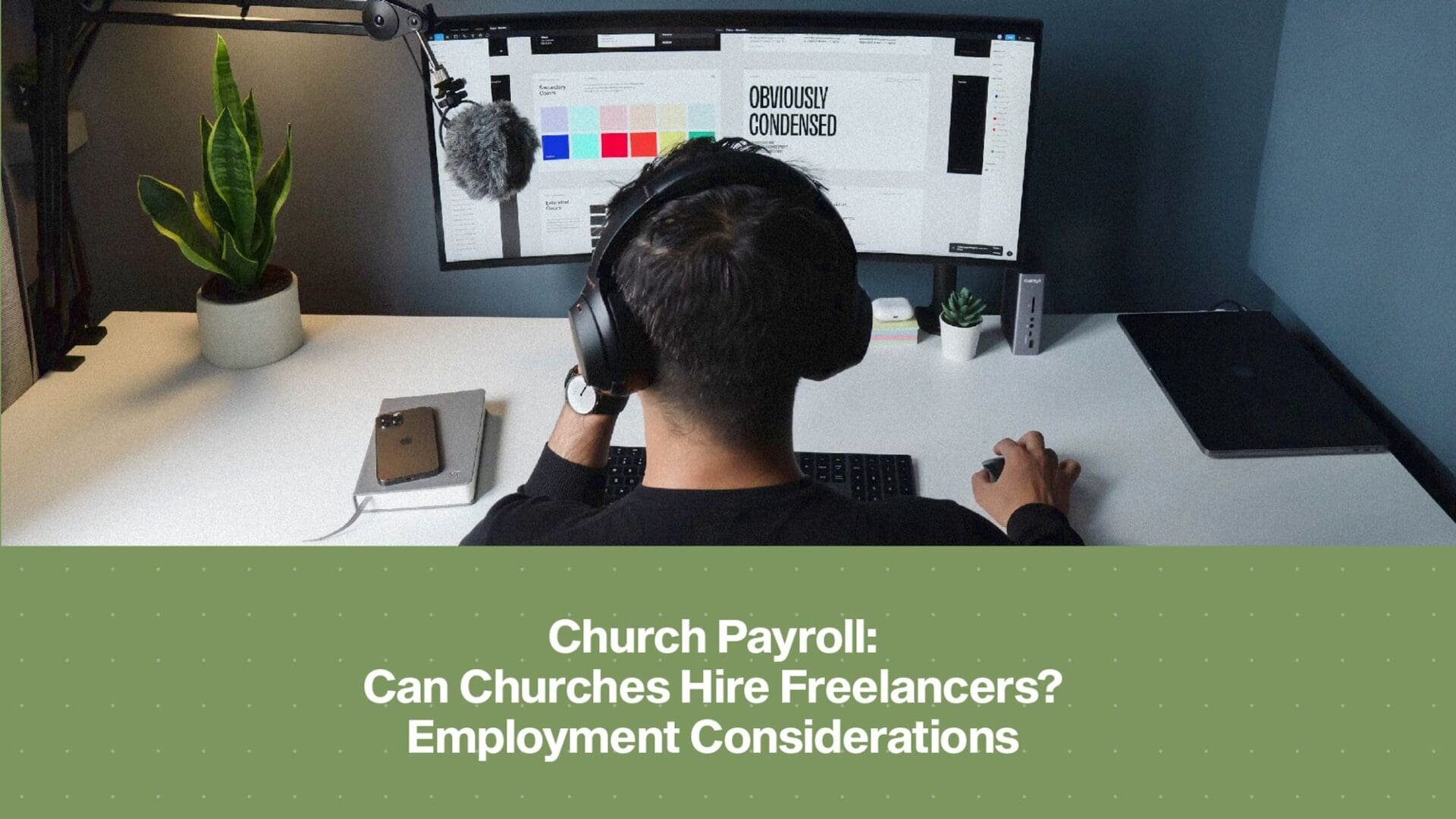
Churches hire full-time staffers on a regular basis. They also work with part-time hires. But what about freelancers?
Can churches hire freelancers? What are the benefits that come from working with a freelancer in the first place? Are there additional considerations or even downsides that come from working with a freelancer?
Let’s break down the concept of church freelancing and consider where it does and doesn’t make sense to add them to the church payroll mix.
Let’s get straight to the point. Yes. Churches can hire freelancers.
As an organization, a church has the ability to work with professionals in multiple formats and with various compensation structures. One of these is the freelance format.
A freelancer is a self-employed individual that offers a service for hire. That means, as a church, you can sign a contract to have a freelancer perform certain duties or fill a specific function for your church.
If you work with freelancers, you aren’t allowed to interfere with how they perform their work. Instead, you can set expectations for what the final product or service will be. In comparison, you can oversee, adjust, and direct the specific on-the-job behavior of church employees.
Freelancing also impacts taxes — though not in a bad way. When tax season rolls around, you can’t create W2s the same way you would for an employee. Instead, freelancers require a 1099 (a simple report detailing the compensation they received for their services throughout the year). It may be different than your typical payroll taxes for your staff, but the process remains fast and simple all the same.
To be clear, working with freelancers is different from hiring a temporary or part-time employee. If someone is a formal employee of your church, even if they work shorter hours, you must still treat them with the employee classification. That means you still have to tend to things like offering appropriate benefits and withholding taxes.
It’s also worth pointing out that pastors are technically given dual tax status. They are taxed as both an employed and self-employed individual. However, the majority of the time, their employment status is as a W2 employee.
Knowing that you can hire a freelancer is one thing. But should you? What do you need freelancers for in a church setting?
The number of options is surprising. Here are just a few of the many roles freelancers can fill for a faith-based organization:
There are many other ways that churches can utilize freelancing services. The important thing is to remember those key differentiating factors that set freelancers and employees apart.
Here are some of the advantages and disadvantages that come from churches working with freelancers:
What should you keep in mind when hiring freelancers for your church? Here are five key tips to help your freelance experience go smoothly:
Freelancers are similar to contractors like Chaney & Associates in the sense that they give churches affordable, professional alternatives to hiring employees. As you prayerfully consider how to incorporate faith-based professionals into your ministry’s activities, keep outsourced options like these in the mix.
If you find that you’re in need of church accounting services, in particular, reach out to our team, and together, we can explore third-party solutions for your church’s finances.
